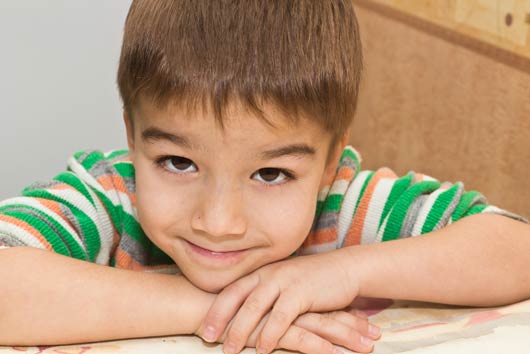
Speaking Spanish in front of non-Spanish speakers is rude … unless you are speaking it to your kids because you want them to learn two languages fluently. This statement may not be well-received by monolinguals. But really, when it comes to choosing between someone feeling offended because I told my kid in Spanish to please lace her shoes, and giving my child an edge in life by doing just that, my kid wins. It works both ways, though. Speaking two languages means that when visiting or living in a Spanish-speaking country, I will address my children in English in front of Spanish speakers and they may be offended. What to do?
Read Related: 7 Easy Tips for Teaching Your Child Spanish #BilingualPlus
While I’m adamant about my kids learning proper etiquette at the table, when greeting people and just in general, I have a double standard when it comes to speaking languages. It’s hard enough to raise a bilingual kid when you don’t have dual-language immersion schools nearby or financially within your reach. If, on top of that, you need to consider that other people may find it rude of you to speak to your kids in a language they don’t understand, you might as well throw in the towel.
I am fully bilingual because my father was daring enough to speak to me and my siblings in the minority language. When we lived in the US, he spoke to us in Spanish and in Spain, he addressed us in English. And that was that, to this day. As I grew up, when speaking to him in front of other people, I started to translate to others the gist of what I had to tell him—whether it was that I wanted the car keys or to please let me stay out later! For some reason, it is still unnatural for me to address my dad in Spanish. On the other hand, I have learned to be a bit more flexible in Florida, where I have lived for the past nine years. My ex-husband is bilingual and so is my fiancé, and we all switch from one language to the other seamlessly. Sometimes I don´t realize whether we are speaking in English or Spanish.
Now, with my kids, it´s a different matter. Even after what I stated above, I find that in order to help out with their homework or explain something in depth I may have to use English, which is really, right now, their first language. Otherwise, they’re just not going to get it. But I’m ecstatic when my eldest, 12, naturally says “¿Qué?” when she hasn’t heard me clearly, no matter which language I spoke to her in.
I know many bilingual parents struggle with this and my advice to them is: if your child is 100% bilingual already (lucky you!) then speak to them in English in front of English speakers and in Spanish at home and with other Spanish speakers. If not, I suggest sticking to Spanish as much as you can, no matter who finds it offensive or rude. As long as you’re not laughing and pointing at them while you do that, they should be mature enough to understand what you’re trying to accomplish. And if not, be gracious and explain it to them. Who knows, you may even get them interested in learning another language!
I have been around plenty of people who speak other languages in front of me, from Creole to Catalan, and since I completely get how you can have a language of choice with certain people or have to communicate in a different language to a monolingual relative, I´m fine with it. Not only that, I understand a lot of what they’re saying, which is exciting. Hopefully most of the world will soon be bilingual, trilingual or multi-lingual and we will learn to be embrace the different languages spoken around us.
[Mamiverse’s Bilingual Plus is an online channel devoted to bringing parents and educators the bilingual learning tools they need in the form of digital picture books, sing-alongs, and free curriculum-based family activities.]












